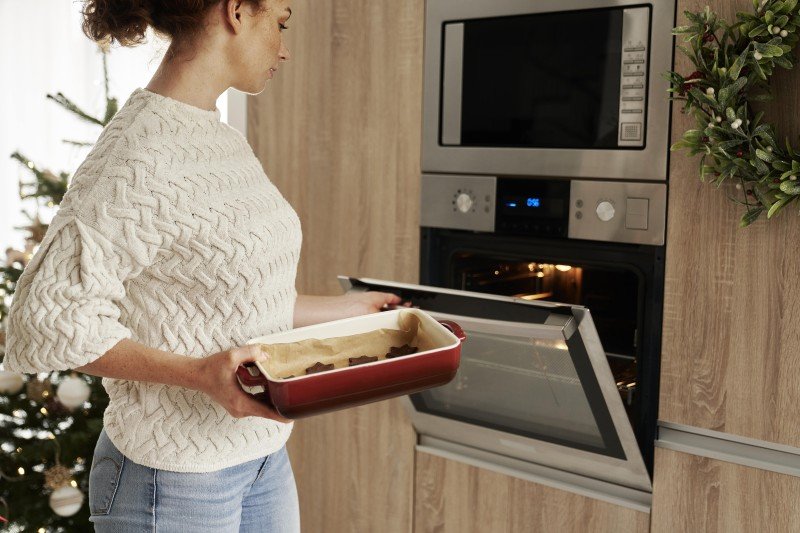10 Wrong Answers To Common Sales Ovens Questions Do You Know Which Answers?
The Comprehensive Guide to Sales Ovens: Understanding Their Importance, Types, and Best Practices
Sales ovens, a classification of commercial cooking devices, are essential players in the cooking and foodservice market. These devices, designed to prepare food in large quantities effectively, are essential in restaurants, catering services, and other food facilities. This post dives into the importance of sales ovens, their types, and best practices for choosing and utilizing them efficiently.
What Are Sales Ovens?
Sales ovens, broadly specified, are cooking gadgets used mostly in business kitchen areas to prepare, bake, or heat numerous food products at scale. Ovens On Sales enables them to deal with higher volume cooking compared to standard residential ovens. Provided the nature of food service, sales ovens typically incorporate advanced innovations that promote speed, efficiency, and even cooking.
Significance of Sales Ovens in the Food Industry
Sales ovens play a critical function in food production for many factors:
- Efficiency: Sales ovens can cook food quicker and evenly than conventional ovens, enabling chefs to prepare meals in less time.
- Consistency: With precise temperature controls, sales ovens ensure that the food is prepared equally each time, preserving quality throughout countless servings.
- Versatility: Many sales ovens can deal with numerous cooking methods including baking, roasting, broiling, and even steaming, making them appropriate for diverse menus.
- Energy Savings: Modern sales ovens are frequently created to be energy-efficient, lowering operational costs for businesses.
Types of Sales Ovens
The market offers a range of sales ovens, each suited for specific cooking requirements and types of food. Here are the most typical types:
Type of Oven
Description
Best For
Convection Ovens
Employ a fan to circulate hot air, making sure even cooking.
Baking and roasting items.
Combi-Ovens
A combination of convection and steam cooking, supplying versatility in cooking methods.
Diverse menus needing steaming and baking.
Conveyor Ovens
Utilize a moving belt to constantly prepare food, perfect for high-volume operations.
Fast food and pizza.
Deck Ovens
Feature separate compartments (decks) that can be individually controlled, offering high efficiency.
Craftsmen bread and pastries.
Rotisserie Ovens
Designed to slowly roast meat on a spit, offering tender and juicy outcomes.
Roasted meats.
Selecting the Right Sales Oven
Choosing the suitable sales oven for a specific company requires factor to consider of numerous factors:
- Volume Needs: Assess the volume of food that needs to be prepared. Higher volume suggests opting for conveyor or combi-ovens.
- Menu Diversity: Understanding what type of meals will be cooked can direct the choice process. For example, a bakery may need a deck oven, while a diner may benefit from a stove.
- Space Availability: Measure kitchen area to guarantee the ovens fit correctly and have needed ventilation.
- Budget: Commercial ovens can differ considerably in cost, so establish a spending plan that considers long-lasting functional savings.
- Energy Efficiency: Opt for ovens that have energy rankings to keep energy costs manageable.
Best Practices for Using Sales Ovens
Effectively operating a sales oven includes more than easy usage. Here are some best practices to remember:
Regular Maintenance: Schedule regular maintenance to tidy and inspect the functionality of the oven. This guarantees durability and effectiveness.
Pre-heating: Always preheat the oven to the wanted temperature level before positioning food inside for constant cooking results.
Make use of Thermometers: For accuracy, use an oven thermometer to ensure that temperatures remain consistent, specifically for baking.
Follow Cooking Times: Adhere to suggested cooking times based upon the kind of food being prepared. Modifications may be necessary for different ovens.
Prevent Overcrowding: Ensure sufficient area around food items in the oven to permit for appropriate air blood circulation.
The Future of Sales Ovens
As technology advances, so do the abilities of sales ovens. Innovations such as clever technology, energy-efficient designs, and enhanced security functions are becoming more popular. These developments assure to improve cooking effectiveness while likewise fulfilling sustainability objectives.
Frequently Asked Questions about Sales Ovens
Q1: How do I clean my sales oven?
A: Regular cleansing involves removing any food debris, wiping down surface areas with non-corrosive cleaners, and following particular cleaning recommendations from the maker.
Q2: What's the life-span of a commercial oven?
A: Typically, a well-maintained industrial oven can last anywhere from 10 to 20 years, depending upon usage and maintenance.
Q3: Can sales ovens be used for baking?
A: Yes, many kinds of sales ovens, especially convection and deck ovens, are particularly developed for baking a range of items.
Q4: Are there energy-efficient options for sales ovens?
A: Yes, a number of makers use energy-efficient models that decrease energy consumption without compromising efficiency.
Q5: How typically should I perform maintenance on my sales oven?
A: It's a good idea to conduct routine upkeep checks on a monthly basis or quarter, depending upon use levels. Furthermore, a comprehensive evaluation needs to occur at least yearly.
Sales ovens are vital in the modern culinary landscape. Their ability to prepare big amounts of food effectively makes them essential for restaurants, catering services, and other food establishments. By comprehending the different types, picking the ideal oven, and adhering to best practices, food service businesses can optimize their cooking procedures, improve their offerings, and ultimately thrill their customers with exceptional culinary productions.
